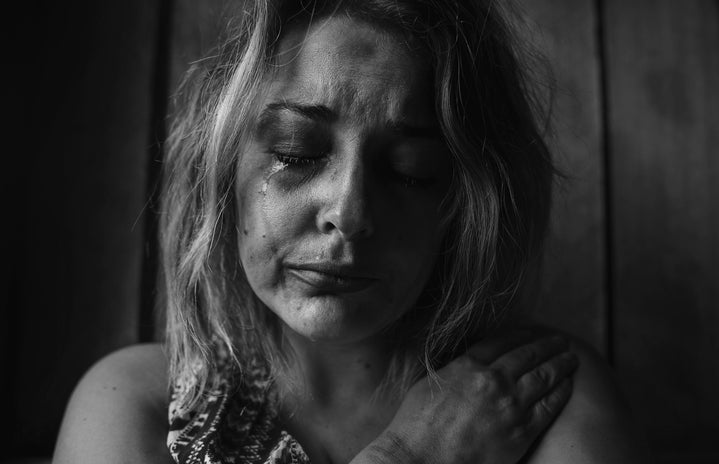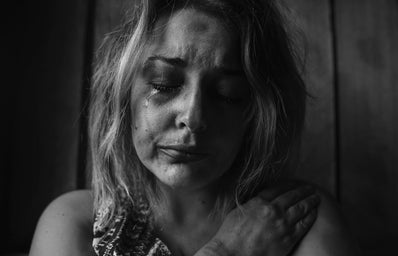WARNING: This article contains sexual assault, so please read with discretion.
Authors’ Note: To protect Her Campus, the identity of the alleged is to remain anonymous.
A recently passed legislation is meant to fix a loophole in New York state law that states if a person becomes voluntarily intoxicated, they are unable to be considered “mentally incapacitated.” This means that New York state law did not recognize their inability to give consent to sexual activities. The unaltered law protected those who were involuntarily intoxicated and therefore were unable to give consent, but did not acknowledge that someone who became intoxicated voluntarily is also unable to give consent. That was a loophole that prevented many sexual assault and rape victims from being able to seek justice, on the grounds that they were voluntarily intoxicated. The updated law was passed on July 21, 2020, at which time, State Senator Alessandra Biaggi released the following statement on the loophole in the law, “The voluntary intoxication loophole perpetuates a dangerous routine of victim-blaming, and encourages New Yorkers to change their behavior in order to avoid sexual assault instead of holding perpetrators accountable. This bill draws a clear line in the sand –– assault is assault and all New Yorkers should be protected irrespective of whether they are voluntarily intoxicated or not.” The bill passed, though not without some who disagreed. Eight female public defenders signed and released a letter stating that they opposed the bill on the grounds that, “the bill would undermine a woman’s right to become voluntarily drunk and engage in sexual activity. “It sends the message that even if we choose to become intoxicated, we are then deemed incapable of saying ‘yes’ because we are under the influence,” it read.” It had many more of those who supported it, however, leading to it being passed. One figure who supported this bill was Governor Andrew Cuomo, who stated to the Associated Press, “Our laws must protect the people of this state — not condone rape as a punishment for consuming alcohol.“ This statement holds true, as the law had prevented victims from finding justice because they had chosen to become intoxicated, an action that does not automatically give consent to sexual activities. Governor Cuomo’s support of this bill is interesting, in regards to his recent sexual assault allegations. Multiple women who currently or previously worked on his staff have come forward to accuse him of sexual advancements and harassment. This includes non-consensual touching, kissing, and inappropriate statements he made towards the women. Despite his outward support of sexual assault survivors and this bill through statements, Cuomo has multiple allegations against him, which draw questions to his integrity and the reality of his support of this bill and such victims. This bill affects people all over New York state who are victims of sexual assault, specifically those who were voluntarily intoxicated. This loophole bill relates more specifically to women on the St. John’s campus, as the statement establishes, in regards to the women coming forward with allegations against a male student.
The alleged has been a student at St. John’s. He was very active in campus activities and many organizations around campus. This, however, does not take away from the fact that the alleged has shown predatory tendencies and should not be allowed back on the campus fall semester. Two survivors have stepped forward stating that the alleged has raped them while they were under the influence of alcohol. Because of the loophole in New York State law that was in place at the time, their claims were disregarded. One of the women involved in the case claims she went to Public Safety to report the alleged, they brushed her aside, alluding to the fact that since she was intoxicated the police would do nothing. The other survivor proved Public Safety correct because when she did go to the police they opted not to take the case, claiming there wasn’t enough evidence. However, according to the survivor, there was evidence in the form of text messages sent to the victim by the alleged. These texts read, “U were moaning and crying[.] I couldn’t understand what you were saying … I thought you were going to die when I walked in the room.” These are referring to how intoxicated she was before he raped her. St. John’s found the alleged guilty of one of the women’s claims, but could not affirm the other. They found him guilty of non-consensual sexual penetration and suspended him for a year.
As female students at St. John’s, we feel the school does not care about our safety and wellbeing. By only suspending him for a year, St. John’s is saying that getting drunk is saying yes. Women throughout history have been held to higher moral standards than men; because of this: “it is women’s responsibility to not get raped, not men’s responsibility not to rape.”
“St. John’s University will not tolerate or condone any instance of dating violence, domestic violence, sexual assault, or stalking within its community,” This is a direct quote from the St. John’s University “2019 Annual Security and Fire Safety Report.” However, when presented with evidence of a female student being raped by a fellow male student, the school fails to hold to their above promise, by allowing him to come back and continue to attend this University. Those in power at St. John’s are condoning his actions while dismissing and minimizing the trauma that the alleged has caused and continues to inflict on female students at St. John’s. These sexual assault survivors deserve support from their university and justice against their assaulter, not to be silenced and dismissed and alcohol being involved does not change this.
On March 18, 2021, another survivor came forward via the SJU Radicals’ Instagram to share her story. In 2017, she was raped by the alleged. She was sober and was coerced and forced into sexual activities, then allegedly manipulated by him. She brought this to St. John’s University, who offered her no support. In her statement, she says, “That was 2017 in October/Early November … He is capable and has violated someone who was not intoxicated. I feel like that is important for people to realize … I decided to seek help from St. John’s University.” She told them her story, to which they asked if she would like them to investigate. She reports that they said, “‘You know if he sees that he has another survivor coming out with something that might want him to drop out of St. John’s and then we have no authority over him so just keep that in mind.’’ She goes on to say, “They made me feel like I would be the reason why St. John’s can’t do anything about him. This was over the phone after the 2020 Thanksgiving break. The investigation started in November of 2020. Months have gone by of me not knowing where things are … I graduate in May.” Through her testimony, it is known that he has allegedly raped multiple people, both intoxicated and sober. He allegedly used manipulation to silence them. Her story shows how, once again, St. John’s University fails to take action against the alleged, after a survivor speaks out with their testimony. St. John’s discouraged this last survivor from speaking out, indicating it would make them unable to take action. This last testimony has only further proved that no amount of testimonies against the alleged can stop him from being enrolled by this university.
The rape loophole law has been changed, but not all sexual assault survivors have found justice. St. John’s University should not permit the alleged to return to campus if they truly value the wellbeing and safety of their female students. St. John’s would rather protect the alleged than protect the rights of a female student, by allowing the alleged to return to campus to continue his education.
Here are some essential and important resources:
National Sexual Assault Hotline – 1 (800) 656 – 4673
National Domestic Violence Hotline -1 (800) 799 – 7233
Rape, Abuse, and Incest National Network (RAIN)/ National Sexual Assault Hotline – 1 (800) 656 – 4673
National Suicide Prevention Hotline- 1 (800) 273 – 8255
Callisto – @callisto
Sexual Violence Outreach Awareness Response (SOAR) – @soar_sju




